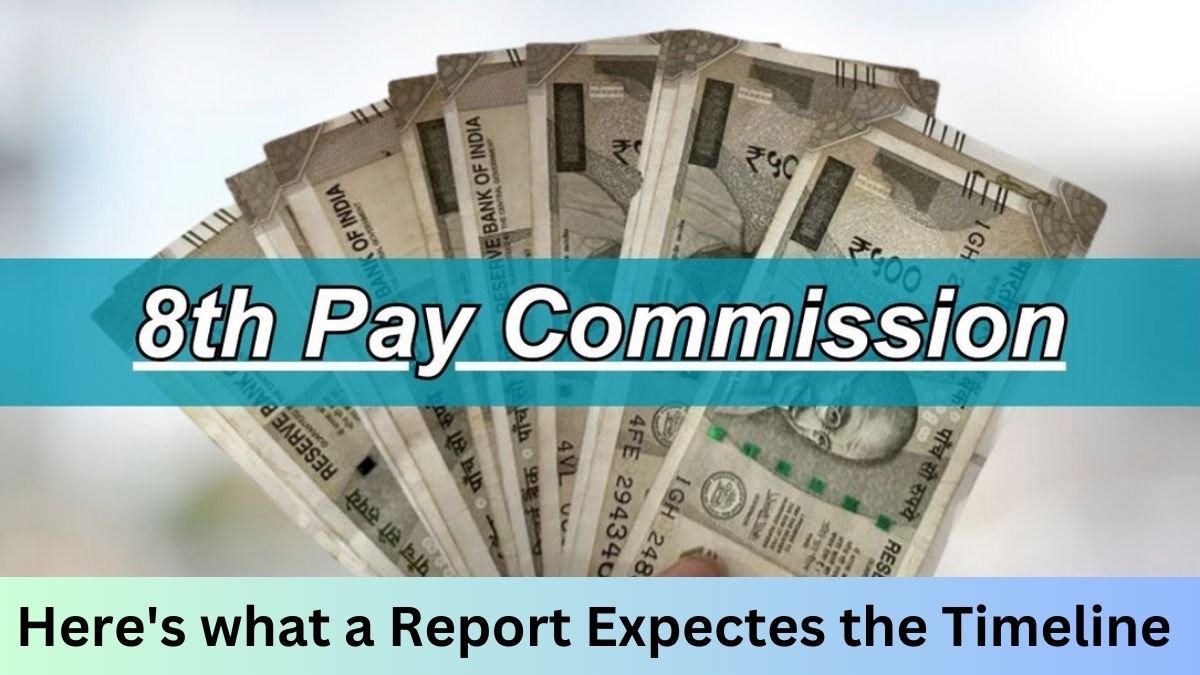The timeline and implementation of the 8th Central Pay Commission (CPC) have been topics of great interest among central government employees and stakeholders. While the government has yet to officially announce a detailed schedule, reports suggest that the establishment and execution of the 8th CPC could take place sooner than anticipated. In this article, we will delve into the projected timeline, expected outcomes, and other important considerations surrounding the 8th CPC, supported by detailed insights and examples.

Projected Timeline for the 8th Pay Commission
| Timeline | Key Event |
|---|---|
| January 2025 | Department of Personnel and Training (DoPT) initiates discussions on Terms of Reference for 8th CPC. |
| February 15, 2025 | Establishment of the 8th Pay Commission. |
| November 2025 | Finalization of the 8th CPC report. |
| December 2025 | Government review and consideration of the recommendations. |
| January 2026 | Implementation of the 8th CPC recommendations. |
What is the 8th Pay Commission?
The Central Pay Commission (CPC) is a mechanism established by the Indian government to revise salaries, pensions, and allowances of central government employees and pensioners. These revisions aim to address inflationary pressures and ensure fair compensation. The 8th CPC is the next iteration of this system, which will follow the 7th CPC that is currently in effect.
The term of the 7th Pay Commission is set to conclude by the end of 2025, making the establishment of the 8th CPC a crucial step for the continuity of equitable pay scales.
Expected Timeline: Fast-Tracked Setup and Implementation
1. January 2025: Initiation of Terms of Reference
Reports indicate that the Department of Personnel and Training (DoPT) may initiate consultations with the National Council of Joint Consultative Machinery (NC-JCM) in early January 2025. The council is expected to deliberate on the Terms of Reference (ToR) within a week to ten days. These terms define the scope of work and objectives for the 8th CPC.
2. February 2025: Formal Establishment of the 8th CPC
The government is likely to formally constitute the 8th CPC by mid-February 2025. This phase involves the appointment of commission members and outlining their responsibilities, ensuring a streamlined approach to salary revisions.
3. November 2025: Submission of the 8th CPC Report
By November 2025, the commission is expected to finalize and submit its comprehensive report. This document will include recommendations on salary structures, allowances, pensions, and other benefits for central government employees.
4. December 2025: Government Review of Recommendations
The submitted report will undergo rigorous review by the government to evaluate its feasibility and budgetary implications. This phase is critical as it determines the final structure of the pay revisions.
5. January 2026: Implementation of Recommendations
If the proposed timeline is adhered to, the implementation of the 8th CPC recommendations will begin in January 2026, ensuring a smooth transition for central government employees.
Historical Context: Comparing Past Pay Commissions
The establishment of the 8th Pay Commission follows a historical pattern of timely revisions. For instance, the 7th Pay Commission took more than a year to submit its report, with an additional year required for its recommendations to be implemented. However, reports suggest that the government is moving faster this time to ensure the 8th CPC’s timely implementation.
| Pay Commission | Year of Implementation | Time Taken (Setup to Implementation) |
|---|---|---|
| 6th CPC | 2006 | ~2 years |
| 7th CPC | 2016 | ~2 years |
| 8th CPC (Projected) | 2026 | ~1 year |
Key Expectations from the 8th Pay Commission
- Revised Fitment Factor
One of the most anticipated aspects is the fitment factor, which directly influences salary revisions. While reports suggest the 8th CPC may propose a fitment factor between 1.92 and 2.08, employee representatives, like Shiv Gopal Mishra from NC-JCM, advocate for a higher factor of 2.86 to significantly enhance employee salaries. - Enhanced Allowances
The 8th CPC is also expected to recommend adjustments in allowances such as House Rent Allowance (HRA) and Dearness Allowance (DA), reflecting inflationary trends. - Pension Revisions
Pensioners are likely to benefit from revised pension scales, ensuring financial stability in their post-retirement years.
Why the 8th CPC Matters
The timely implementation of the 8th CPC is vital for maintaining the morale and financial well-being of central government employees. It also has far-reaching implications for the Indian economy, as revised salaries and allowances can boost consumer spending and contribute to economic growth.
FAQs
Q1: When will the 8th Pay Commission be established?
As per reports, the government may establish the 8th CPC by February 2025.
Q2: What is the expected implementation date for the 8th CPC?
The recommendations of the 8th CPC are projected to be implemented by January 2026.
Q3: What is the fitment factor proposed for the 8th CPC?
The expected fitment factor ranges between 1.92 and 2.08, though employee representatives are advocating for 2.86.
Q4: How does the 8th CPC differ from the 7th CPC?
The 8th CPC aims to address inflationary changes and improve upon the framework established by the 7th CPC.
Q5: Why is the 8th CPC being fast-tracked?
The government aims to provide ample time for discussions, review, and timely implementation, ensuring minimal disruptions for employees.
In summary, the 8th Pay Commission promises to bring significant changes to the salary structure of central government employees. With a faster timeline and enhanced recommendations, it aims to address inflation and ensure fair compensation for millions of employees and pensioners.
Click here to know more.
Kishan is a knowledgeable writer specializing in agriculture and the latest government job recruitments, delivering clear and insightful content to inform and empower readers.
